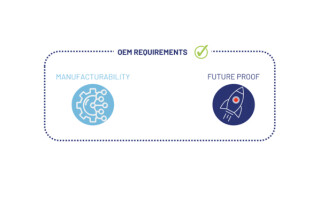Mocana to support Infineon OPTIGA TPM 2.0
February 13, 2017

SAN FRANCISCO. Mocana has announced that it will begin supporting Infineon’s OPTIGA Trusted Platform Module (TPM) 2.0 cryptoprocessors in 2H 2017, easing integration of security functions and...
SAN FRANCISCO. Mocana has announced that it will begin supporting Infineon’s OPTIGA Trusted Platform Module (TPM) 2.0 cryptoprocessors in 2H 2017, easing integration of security functions and software development for electronics manufacturers.
Already supporting the OPTIGA TPM 1.2, the extended offering will provide an upgrade path for customers via Mocana’s trust engine abstraction layer to support all core features of the Trusted Computing Groups (TCG’s) TPM 2.0 specification such as automated X.509 certificate management through SCEP or EST protocols; symmetric and asymmetric algorithms (ECC P256, ECC BN256, AES 128, AES 256, and SHA 2); an application programming interface (API) abstraction layer for Java and C applications; integration of SSL, SSH, and IPsec communications protocols; support for Linux, Windows, and real-time operating systems (RTOSs); confidentiality and integrity key protection; and the ability to use the TPM as a device-specific trust anchor. Users of the Mocana IoT Security Platform will be able to access these and other features of the Infineon OPTIGA TPM 2.0 cryptoprocessors, including certificate management tools.
“We are excited to continue our partnership with Infineon to unlock the benefits of TPM 2.0 for our joint customers by tying the hardware-based root of trust to applications,” says Bill Diotte, CEO of Mocana. “Integrating our IoT Security Platform with Infineon’s OPTIGA™ TPM 2.0 chipset will enable customers to make their devices trustworthy and enable secure device-to-cloud communications that is powering the new digital manufacturing wave.”
More information can be found at www.mocana.com.




